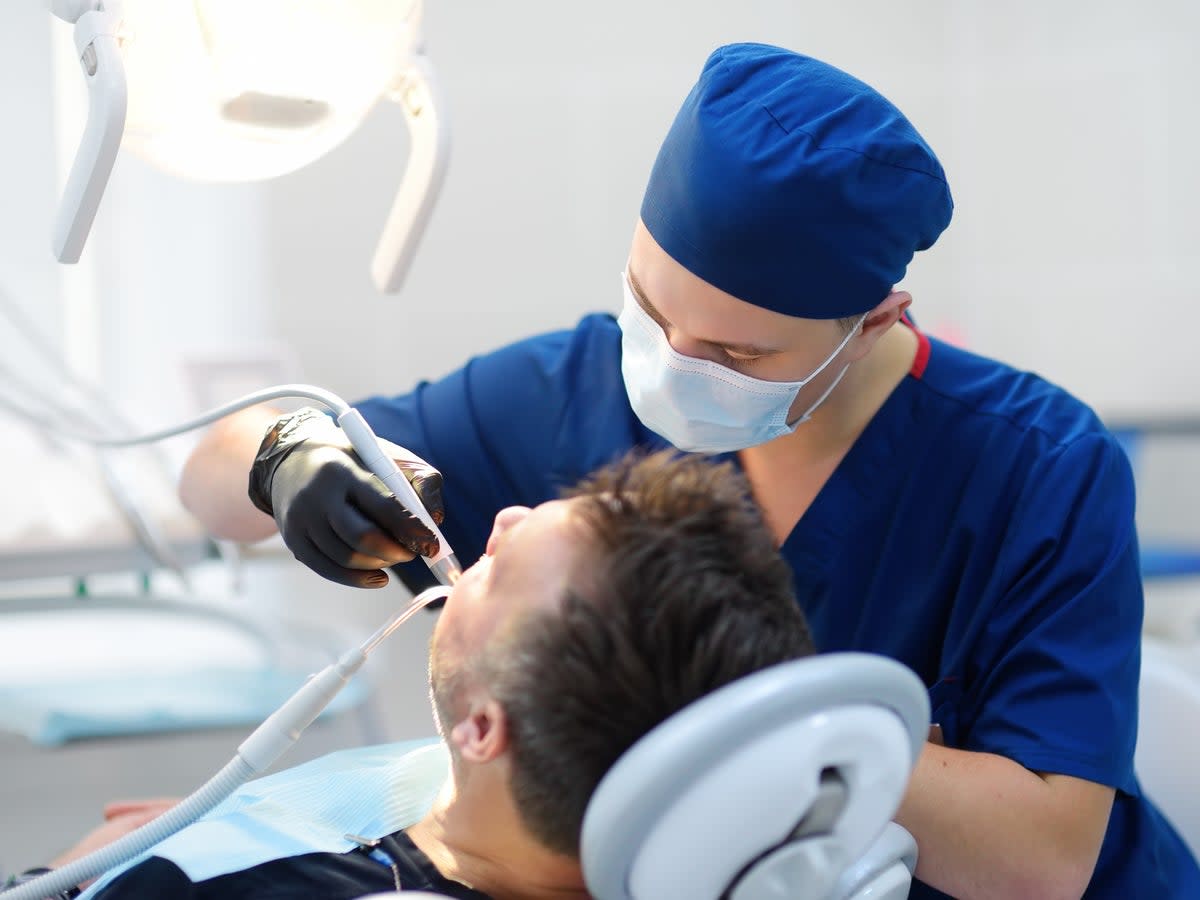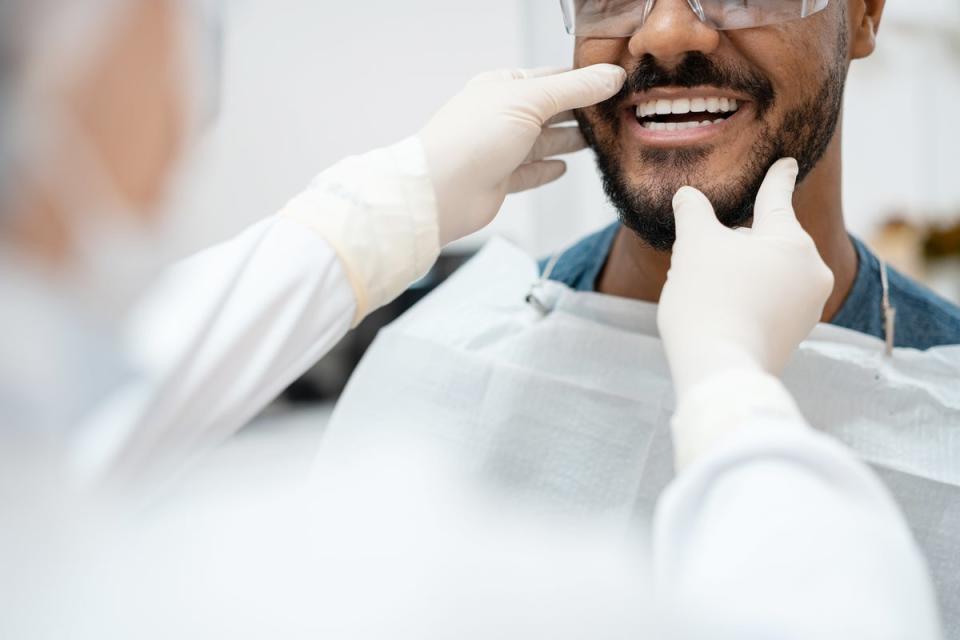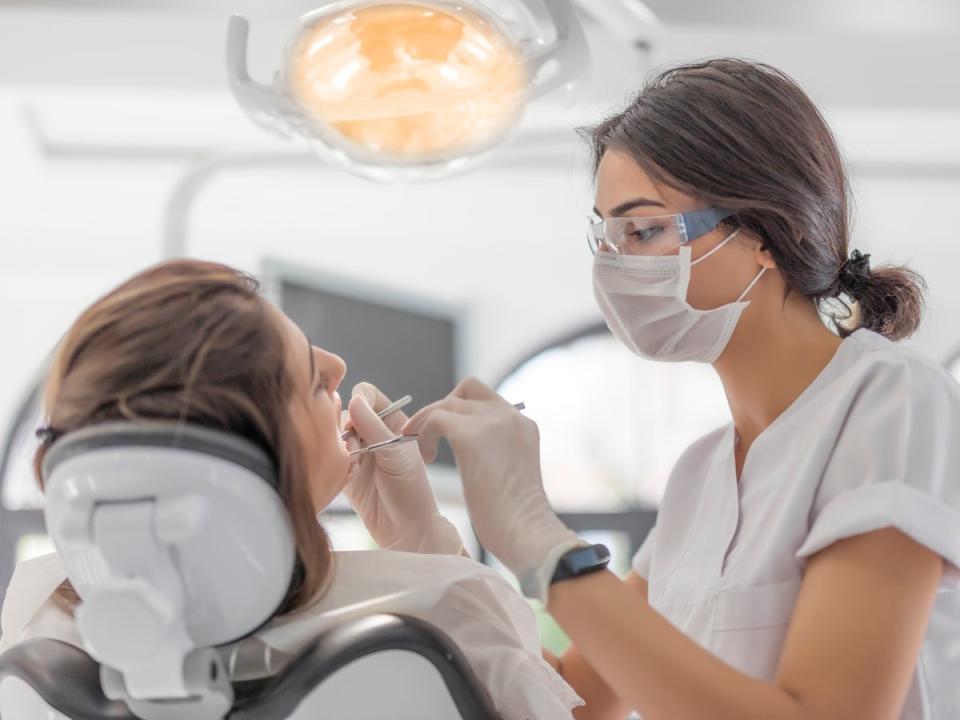NHS dentist shortage: Signs you need urgent dental care and how to get it

The majority of dental practices in the UK are not accepting NHS patients, an investigation by the BBC has found.
The research found that 90 per cent of practices are not taking on new adult patients, while 80 per cent are not taking on child patients.
Even for those registered with NHS dentists, appointments can be hard to come by. A friend of mine in London who booked an appointment in June couldn’t get a check-up until mid-September, meaning there was a two and a half month wait.
Another said their local NHS dentist is no longer accepting registrations, and her only NHS option is to go with a student dentist.
People are taking to Twitter to lament about dental delays too, with one person writing: “My annual NHS dentist check up in August was cancelled, and the next appointment offered is 7 December.”
Another said: “Finally managed to get a dentist to take me on as an NHS patient. The appointment is not until October and 35 minute drive away, but after being knocked back by 10 other dentists at least I have a foot in the door.”
A third added: “I haven’t been able to get an NHS dentist appointment in over a year as no where where I live is taking on new NHS patients.”
Why are dentists not accepting NHS patients?
“While the pandemic has definitely had an impact, access to NHS dental care for all has been highlighted as an issue since long before the pandemic,” Dr Rhona Eskander dentist and owner of Chelsea Dental Clinic, tells The Independent.
“At the start of the pandemic, routine NHS dental services paused, and then practices introduced enhanced infection prevention and control measures to help prevent the spread of COVID-19.
“The pandemic has compounded previous issues about access to dental services, as it has resulted in reduced capacity.”

Why are there such long waits for check-ups?
Eskander explained that NHS dentists are “dealing with the back log” of NHS patients from the pandemic.
She says that, in March 2020, “fallow time” was introduced which meant that rooms needed to be aired out between each patient. As a result, less patients could be seen.
While fallow time is no longer needed, it is still advised to disinfect and clean the room between patients.
“Many people missed their routine check ups meaning that reversible diseases turned irreversible,” Eskander adds.
“So fillings turned into root canals or extractions. Diseases got worse and due to Covid restrictions the volume of patients being able to be treated reduced. This meant dentists had to limit how many patients that they could see.”
What are your options if you have an urgent dental problem?
Eskander advises calling 111 if you have an urgent dental problem.
“The Dental Helpline continues to be an invaluable resource for those looking to seek advice, help and reassurance about their oral health and wellbeing,” she adds.
“It is a truly charitable service. All enquiries are completely confidential and answered quickly.”
You can call the dental helpline on 01788 539 780.
10 signs and symptoms that you need urgent dental care
There are several signs that you may need urgent dental care, but Eskander said pain with or without swelling is the most pressing one.
She adds that you should seek urgent dental care when:
You’ve lost a tooth.
You have a severe toothache.
Your gums are bleeding and ache.
You’ve got a swollen jaw.
You have a dental abscess.
Your canker sore isn’t getting better.
You’ve got constant headaches as your teeth and head are connected.
Your tooth has gone numb.
Your exceedingly tired, which could be due to an oral infection.
Your mouth tastes like metal.

How can you look after your teeth until you get a dental appointment?
Eskander says you should brush twice a day with an electric toothbrush, and you can use an interdental aid such as a WaterPik waterflosser to get underneath the gums.
She advises avoiding very sugary foods, and suggests using a mouthwash.
“When you don’t regularly take good care of your teeth and mouth, you could experience cavities and gum disease,” she explains.
“Your teeth can decay when you don’t brush and floss them regularly to get leftover food off of them. If left untreated, cavities can cause tooth pain, can cause your tooth to become infected, and can even lead to tooth loss.
“Gum disease happens when plaque collects along your gum line. Gum disease is an infection of the tissue that supports your teeth. It can cause teeth to become loose over time. There is also evidence that gum disease is related to heart disease.”

